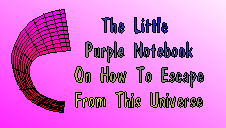
723. The Karma of A Teacher
There are two kinds of 'teaching':
One consists of having students be able to enumerate so-called 'facts'; this category is sometimes useful for certain pseudo-sciences that do not necessitate 'understanding' of dynamic structures, such as Geography, History, etc.
A second kind of 'teaching' aims to communicate 'understanding'. In a strict sense 'understanding' cannot be taught. It must be discovered and experienced by the individual student by him- or herself.
For this reason Gotamo Siddharto described his way of 'teaching' as leading the minds of his listeners into a direction where it can be expected that they _look_ at what he was pointing at.
However, there is an old saying in the Wild West, 'one can lead a horse to the water but one can't make it drink'. Even the best guide cannot do more than point the way and it is ultimately up to the listener to gain more understanding.
It is close to impossible to 'judge' the individual understanding of a person. Because of the countless factors involved, it is possible that a ten-year old can have a better intuitive understanding of basic processes in life than an 70-year old professor with a cabinet full of awards, titles, and recognitions.
In this notebook the best effort has been made to point into the direction of awakening from the dream of life and the underlying assumption is that the readers will follow at least in part the pointers provided here and then benefit from their own cognition processes that may have been stimulated or propelled by these notes.
The proper way for a teacher to show a direction is to go into this direction him- or herself.
Talking about the various ways that other teachers are taking is usually not helpful; it distracts the listener from the particular way the teacher is going.
Since there is always more than one way to reach a destination it does not make sense to critize another 'teacher' or 'guide' just because they are taking a different route.
And even if others seem 'objectively wrong', it still is not always advisable to speak the truth when the damage may be greater than the benefits.
Therefore, whenever it is possible, the author of this notebook uses the tools of parables and metaphors to communicate patterns of illogical behavior.
Very often, humor is
used instead of direct statements. This approach has the advantage that
it makes it easier for the reader to break out of an illogical pattern
by taking out some of the reader's seriousness and inflated importances
instead
of 'blaming' him or
her or disclosing his/her foolishness in the public arena of a book.
There are several exceptions
because of the severity or magnitude of damage of some theories. Many of
these have been falsely attributed to Gotamo Siddharto and it sometimes
appeared necessary to assert a different perspective than is commonly 'known'
or echoed as 'authorative word' of the Buddha. The actual sources of these
'words of the Buddha' often go back to texts that have been written many
centuries
after his departure
by people who had limited access to the early reports within the so-called
Pali Canon.
Some of these theories and practices described are not only NOT leading to awakening for the people following them, they are also preventing many of those who would be ready to awake from the dream of life and may just need a bit of encouragement and acknowledgement of their own abilities to get started.
This means the damage
is twofold:
Which brings us to the topic of this chapter: the karma of a teacher.
If someone, for example, embraces the extreme viewpoint of 'all life is suffering', suffering will follow him 'like a cart behind the ox'. This is his problem and he will have to carry the consequences by himself.
If someone now indoctrinates _others_ that 'all life is suffering' and he actually finds believers that follow him in this extreme way of approaching life, he now becomes responsible not only for the misery in his own life but also, at least partially, responsible for the misery of those that he taught.
If he is a 'good' teacher, there will be some students who will in turn be teachers of his 'truth' in the future.
His 'karma', and in
this case we see one of the worst possible karma scenarios, will
deterioate with the amount of damage he is causing by prompting people
to ruin their
lives.
This means, ironically, that the 'better' he is as a teacher, the worse his individual 'karma' will get.
Now, a teacher on the subject of 'waking up' should really be already on the 'safe side of the shore'. Even though 'good karma' is not a major concern for such a person anymore, it certainly helps to make things a lot easier..
Let's turn to the bright side of life...
Here are the Good News:
While a 'good' teacher
can shorten the way considerably, everyone can (and to a certain degree
should) be their own teacher.